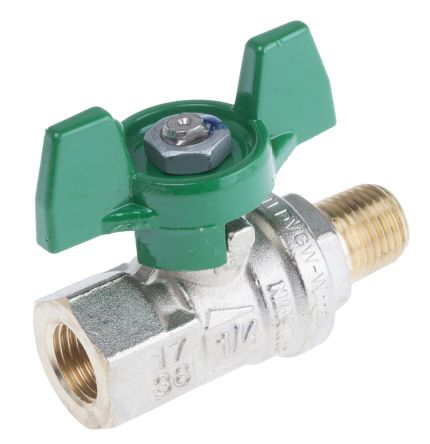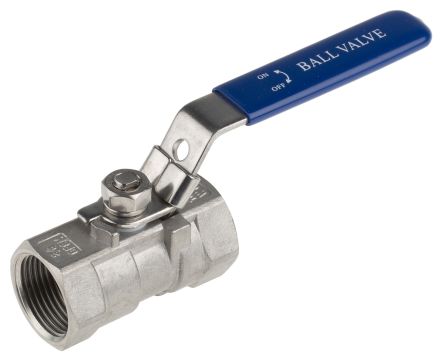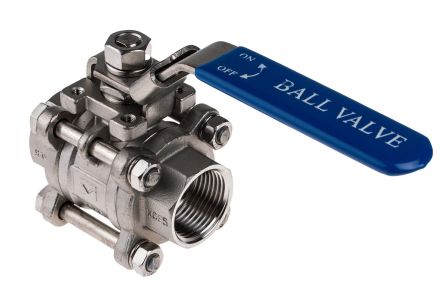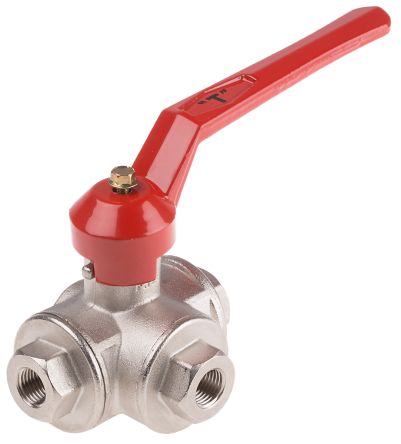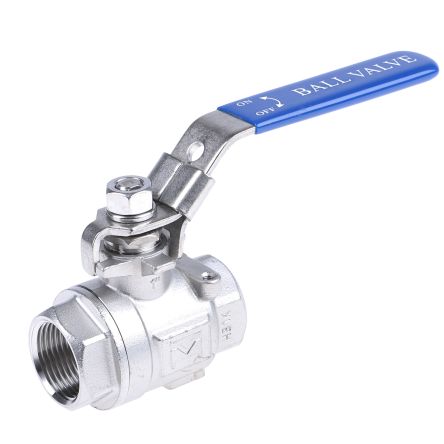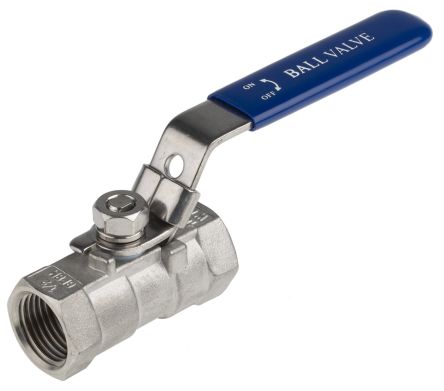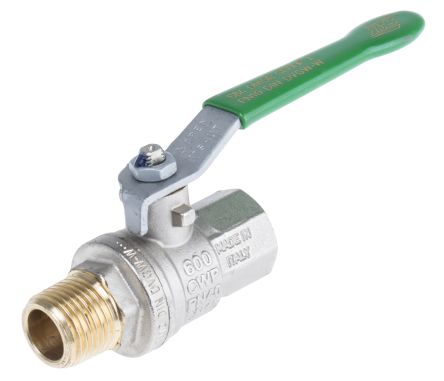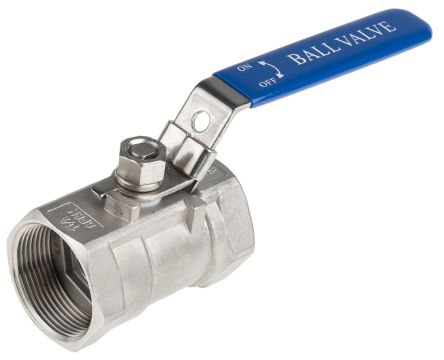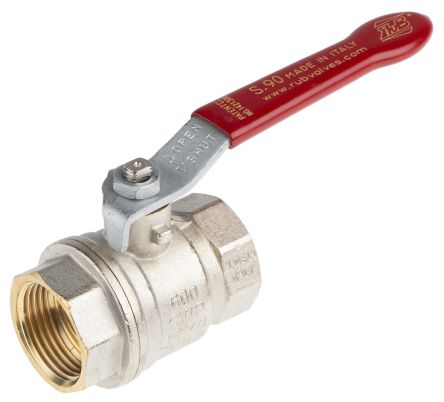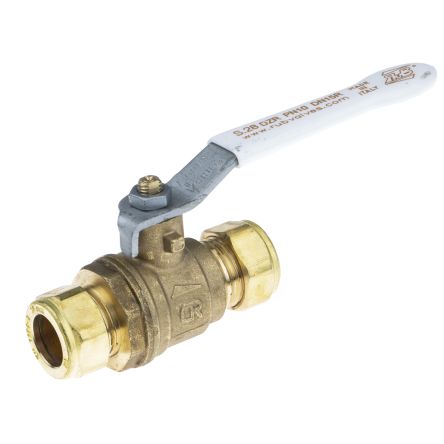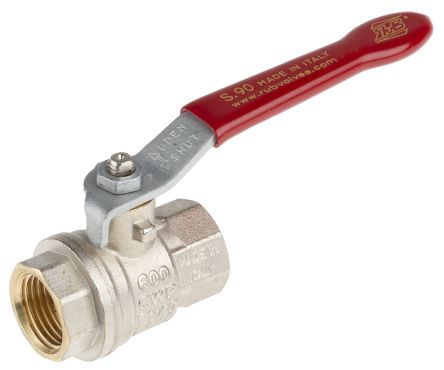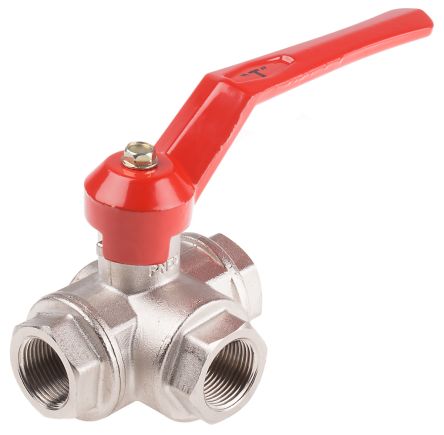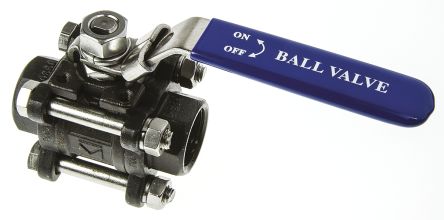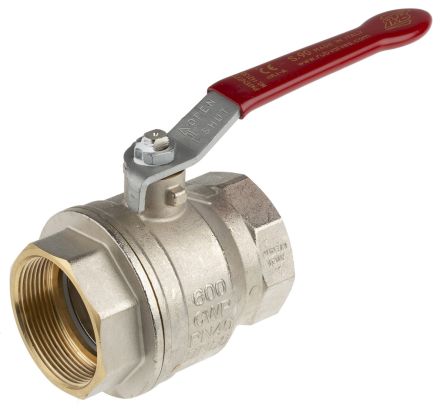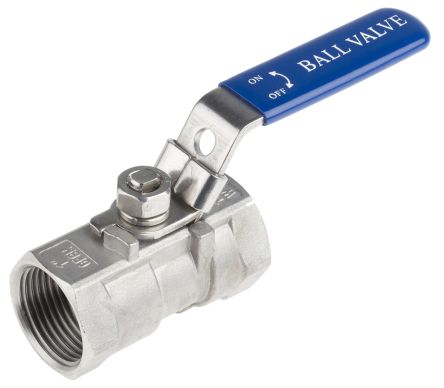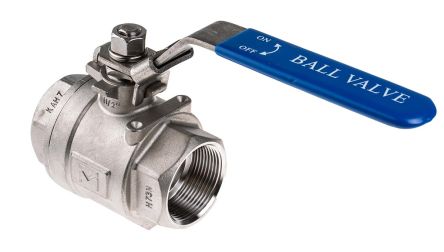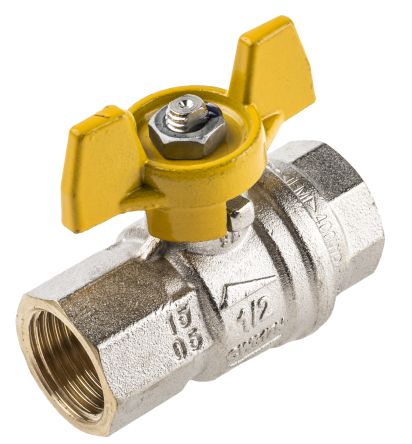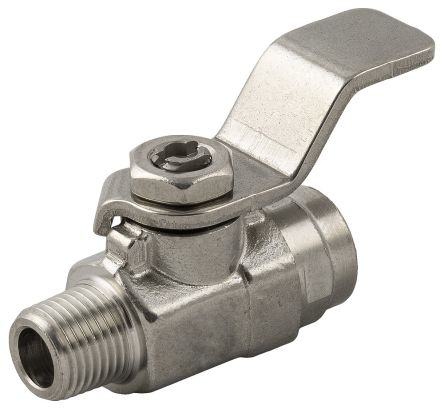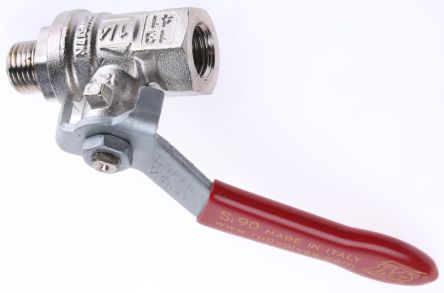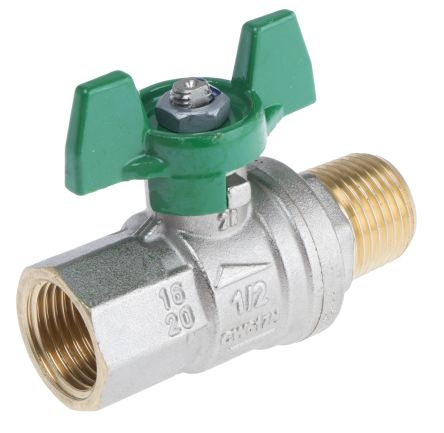- Automation & Control Gear
- Cables & Wires
- Enclosures & Server Racks
- Fuses & Circuit Breakers
- HVAC, Fans & Thermal Management
- Lighting
- Relays & Signal Conditioning
- Switches
- Batteries & Chargers
- Connectors
- Displays & Optoelectronics
- ESD Control, Cleanroom & PCB Prototyping
- Passive Components
- Power Supplies & Transformers
- Raspberry Pi, Arduino, ROCK, STEM Education & Development Tools
- Semiconductors
Ball Valves
Manual ball valves are commonly used to operate shut-off valves, which control water flow and pressure in, for example, plumbing systems applications. Manual ball valves get their name from the metal ball inside the device, which has a hole through the middle. You can discover more in our ball valves guide.
How do ball valves work?
When the valve is open, the hole is aligned with the pipes and permits flow. When it is closed, the hole is rotated perpendicular to the flow, shutting the valve off completely. The valve handle lies flat in alignment with the flow when open, and is perpendicular to it when closed, making for easy visual confirmation of the valve status. The handle can also be set in half-turn or quarter-turn positions if required, reducing the fluid flow level and pressure.
Types of manual ball valves
When choosing manual ball valves, pay attention to the connection type, in which they can be attached to the shut-off valve. These methods include compression, push-fitting, threaded end, and solvent cement sockets. Also, the seals, handle material and handle configuration options, for example, can the handle be mounted in both directions or is it fixed.
In some models, a ball can be operated with a screwdriver, this allows for installation in confined spaces. Manual ball valves are also differentiated by the materials they are made from, which include brass, iron, PVC, and stainless steel. The application of a manual ball valve is determined by this, for instance, a stainless-steel valve is much more capable of withstanding heat than a PVC valve.
Applications
Ball valves are extensively used in plumbing systems for a variety of applications. Ball valves provide a reliable and efficient way to control water flow, isolate sections of the plumbing system, and facilitate maintenance and repairs.
- Main Water Supply: Ball valves are often installed at the main water supply line entering a building. They serve as shut-off valves that allow for isolating the water supply to the entire building in case of repairs, maintenance, or emergencies.
- Fixture Shut Off: Ball valves are used to control the water flow to individual fixtures such as sinks, toilets, bathtubs, and showers. They provide a convenient way to shut off the water supply to a specific fixture.
- Water Heater: Ball valves are typically installed on both the cold-water inlet and hot water outlet of a water heater. These valves allow for shutting off the water supply to the water heater during maintenance or replacement.
- Appliance Connections: Ball valves are commonly used to connect appliances such as dishwashers, washing machines, and ice makers to the plumbing system. These valves allow for easily shutting off the water supply for maintenance or repair purposes.
- Pipe Repair and Maintenance: Ball valves are utilized during pipe repairs or maintenance tasks, such as replacing a section of pipe or installing new fixtures.
- Backflow Prevention: Ball valves are an integral part of backflow prevention systems. These valves are installed to prevent the reverse flow of contaminated water into the main water supply. They are typically positioned at critical points in the plumbing system.
- Water Metering: Ball valves are sometimes used in conjunction with water meters to control water flow for measuring consumption accurately. These valves allow for shutting off the water supply to the metered area during meter maintenance or replacement.
- Pressure Regulating Systems: Ball valves can be employed in pressure regulating systems to control and maintain optimal water pressure within a plumbing system. They enable adjustments to the flow rate to ensure efficient water distribution.
